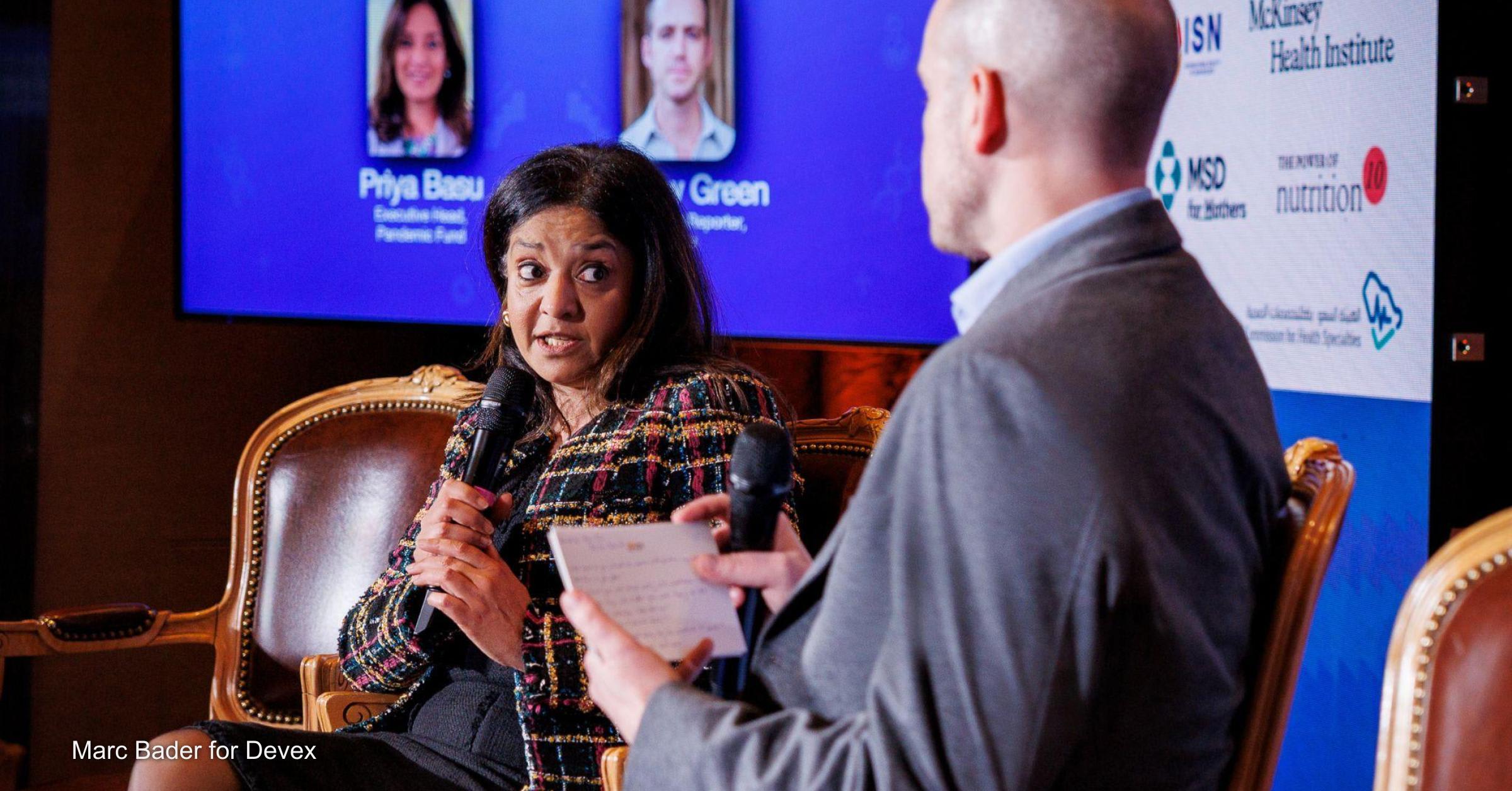
COVID-19 has not been kind to our world. But people with disabilities have been particularly hard hit by the coronavirus pandemic.
It is well documented that people with disabilities are among the most vulnerable population in a pandemic, as they often may not be able to fully implement the required self-protection and hygiene or might end up in inappropriate health care environments. Today, people with disabilities are part of the high-risk group and have an increased risk of contracting COVID-19.
CBM’s work during the pandemic
Due to our flexibility and agility, CBM has fortunately been thriving during this difficult crisis. Thanks to our donors, we have been able to dedicate over €3 million to our projects exclusively addressing the coronavirus pandemic.
Whether for a refugee in Nigeria, a woman with a disability battling domestic violence in Pakistan, a man living in the remote islands of Uganda, or daily wage laborers receiving humanitarian assistance in India, CBM remains at the forefront by continuing lifesaving work around the world to ensure that no one is left behind in this pandemic.
For more information, visit www.cbm.org.
The onset of the coronavirus pandemic has thrown up new challenges for CBM’s work in low- and middle-income countries. Food and medical supply chains were abruptly cut off. Many people with disabilities lost their daily wages and were unable to fend for themselves and their families.
Some of our partner clinics and hospitals were battling drastically increased costs and shrunken revenues. Others were converted into COVID-19 hospitals, where the original mandate of care remained unfulfilled.
But the single most devastating effect was the inability to carry out critical work and reach people with disabilities in need. For example, due to stringent transport bans, people with disabilities were unable to visit our medical service points, and no field assignments — such as mobile eye clinics — meant no access to poor patients in remote and marginalized communities.
Innovation is key
To avoid a dire scenario of poverty, starvation, or even death, CBM has been quick to think on its feet and adapt to the ever-evolving situation, not just to reach people with disabilities and vulnerable populations, but also to provide support and expertise to our field partners worldwide.
1. Corona Response Fund
CBM was quick to launch a Corona Response Fund in March to mitigate the far-reaching effects of the COVID-19 pandemic on our projects in Africa, Asia, and Latin America. We were forewarned of, among other things, a dire food shortage and a drastic slump in medical care facilities, specifically for people with disabilities.
We launched two emergency fundraising appeals — one at the end of March and the second at the end of May. Thanks to private and institutional donations, we were able to raise over €3 million euros ($3.6 million), of which €1.5 million has already been disbursed.
Corona Response Fund resources are being channeled to CBM partners in Africa to provide assistance in Ethiopia, Burkina Faso, Cameroon, the Democratic Republic of the Congo, Côte d’Ivoire, Madagascar, Niger, Nigeria, Rwanda, Zambia, Zimbabwe, and Uganda.
In Asia, CBM is partnering with disabled people’s organizations at the local and national levels, as well as governments in India, Nepal, and the Philippines. And in Latin America, we are providing support in Guatemala, Nicaragua, and Peru.
The funds are being used for:
• Access to water and hygiene — soap, disinfectant, and hand sanitizer, among others. Common washing stations have also been set up in many local communities.
• Maintaining operations in our hospitals and health stations, including the training of personnel and the provision of disinfectants, hygiene kits, face masks, and other personal protective equipment.
• Food distribution to people with disabilities and their families who would otherwise be at risk of starvation and death due to strict curfews, unemployment, or poverty.
• Dissemination of coronavirus-specific information tailored to the needs of people with disabilities, such as special TV and radio ads, sign language interpretation, brochures in Braille, training on how to disinfect wheelchairs, and so on.
In addition to the Corona Response Fund, many CBM project countries are leading their own initiatives to tackle the coronavirus crisis and help those in need.
2. Guidance notes
As one of the world’s leading expert organizations on disability-inclusive development, CBM has also produced two important tools to emphasize the importance of proactive community development responses and encourage community stakeholders to work collaboratively in response to the COVID-19 challenge:
To support our partners, the “Disability Inclusive Community Action – COVID-19 Matrix” has been developed to provide guidance on possible action points in community development and mobilization in relation to COVID-19 preparedness and response.
The matrix, available in six languages, aims at providing brief and clear action points that can easily be adapted to local contexts. It provides keywords and anchors for program managers to engage with local governments and service providers and hold them accountable.

Similarly, a guidance note for COVID-19 has been developed to support our eye health partners, and the communities they serve, in their efforts to combat this global health crisis. With this note, we hope to strengthen our partners so that the communities they work for, including vulnerable groups of people, get the appropriate support in this time of need.
The guidance note provides recommendations in areas of patient management for both outpatient and inpatient clinics, staff management, and health care infrastructure management — specifically, in areas of protection, testing, and isolation, should the partner or partners prioritize saving lives over providing noncritical eye care.
There may be some cause for celebration, but the fight against COVID-19 is far from over. NGOs and civil society organizations have a critical role to play in supporting community action and ensuring that those who are most often marginalized are given a voice during this challenging time.
As the leading global organization on disability-inclusive development, CBM continues to promote the active participation of vulnerable populations in decision-making during the current pandemic, empowering them to exercise their human rights and helping create an inclusive society for all.








